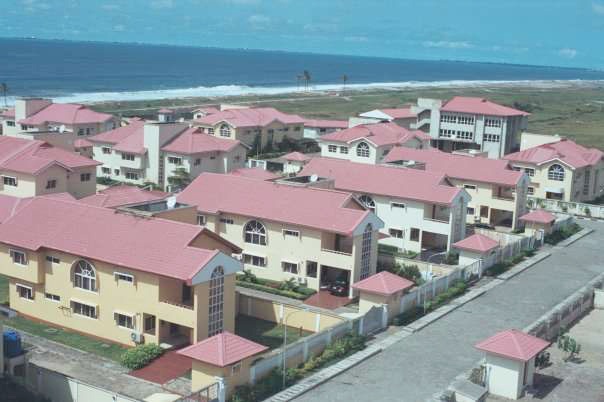Housing as one of the basic necessities of life is largely hampered by low funding by our banks. With a population put at 200 million people, it is at a mere 25 per cent compared to Kenya’s, which is 73%, South Africa, 56% and Indonesia, 84%.
A recent report says an analysis of data in the third quarter of last year showed that the nation’s housing industry grew only once since 2016.
Curious policies of government, the report says, and the decline are not unconnected with the paucity of funds made available to the sector for home building, adding that “data from the CBN suggested that loans granted to the real estate sector recorded seven consecutive declines stretching back to the third quarter of 2017.
“The real estate performance remained sub-optimal during this period and recorded positive gross domestic product (GDP) growth just once in the past 15 quarters,” it said.
READ ALSO: Just In: Gunmen Attack Abuja Community, ‘Abduct Residents’
Bank loans to the real estate sector fell in the second quarter of 2019 and total credit to the sector “Declined 4.20 per cent quarter on quarter and 22.90 per cent year on year to N1.80 trillion in the second quarter of 2019.”
The report quoted the National Bureau of Statistics as stating that “Credit dropped from N710 billion recorded in the third quarter of 2018 to N588 billion out of N16.25 trillion credit facilities given in the same period of 2019.
Regardless of the downturn, some developers continued to increase their housing stock with reputable companies standing their ground. Within the period, new homes emerged across the country, specifically in Lagos, Port Harcourt and Abuja, where the bulk of the homes have been built.
Nigeria needs a lot more industry players to help support the government’s goals in this area.
Like the few real estate companies still weathering the storm in the sector, Lekki Gardens employed many local personnel of global repute to drive their projects.
However, there is a major concern about uptake, considering the low income capacity of most prospective home buyers. Mortgage interest rates, they said, is too high, adding that this situation needed government intervention.
According to professionals in the sector, “These housing loans are ways for people to become homeowners. Yet, it has not taken off in Nigeria. Left to the private sector, Nigerian mortgages are not a viable option, as interest rates are in the double digits. If you are paying 15% interest on a 35-year mortgage, you would have paid around five times the original value of the property.”
In this regard, government ought to promote low cost technologies for mass housing units’ solutions through Public Private Partnership (PPP) arrangements.
The quality of land administration in the country significantly needs improvement. The Land Use Act No. 6 of 1978 continues to hinder the land markets and acquisition in Nigeria. The major objective of making land easily available has not been fully achieved by the act. Tenure of security and title system is largely formal, requiring the consent of a governor of a state on all transactions since the LUA has vested all lands in the governor.
Whilst government is increasing efforts to reduce the housing deficit and effectively focus on problematic areas like the deficiency of housing loan system, the lack of social housing, titling problems and documentation, there is however a dire need for other entities to complement their efforts.
A feasible means of impacting housing cost and reducing the housing gap in Nigeria is to advocate for private sector involvement in the real estate sector. A laudable example is Lekki Gardens Estate Limited that has executed projects to reduce the housing deficit in Nigeria while also gainfully employing a coalition of engineers, architects, quality control experts, surveyors, customer service representatives and site workers, amongst others.
Hopefully, with the right supports and partnership, Nigeria’s housing gap will be reduced to the barest sooner than later.

Leave a comment



